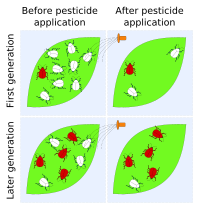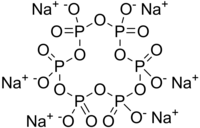
Development and validation of a novel stability-indicating reverse phase HPLC method for the determination of sacubitril-valsartan premix stereoisomers: Cellulose tris(4-methyl benzoate) stationary phase.
Sign Up to like & getrecommendations! Published in 2022 at "Journal of separation science"
DOI: 10.1002/jssc.202200363
Abstract: A new stability indicating reverse phase HPLC method has been developed, optimized and validated as per International Conference on Harmonization guidelines for the determination of stereoisomers namely (2R)-valsartan, (2S,4S)-sacubitril, (2R,4S)-sacubitril and (2R,4R)-sacubitril in sacubitril-valsartan premix.… read more here.
Keywords: sacubitril valsartan; stability indicating; reverse phase; sacubitril ... See more keywords

Reverse Phase Protein Arrays.
Sign Up to like & getrecommendations! Published in 2021 at "Methods in molecular biology"
DOI: 10.1007/978-1-0716-1064-0_9
Abstract: Reverse phase protein arrays (RPPA) are used to quantify proteins and protein posttranslational modifications in cellular lysates and body fluids. RPPA technology is suitable for biomarker discovery, protein pathway profiling, functional phenotype analysis, and drug… read more here.
Keywords: protein; protein arrays; antibody; reverse phase ... See more keywords

Reproducibility and Crossplatform Validation of Reverse-Phase Protein Array Data.
Sign Up to like & getrecommendations! Published in 2019 at "Advances in experimental medicine and biology"
DOI: 10.1007/978-981-32-9755-5_10
Abstract: Reverse-phase protein array (RPPA) technology is a high-throughput antibody- and microarray-based approach for the rapid profiling of levels of proteins and protein posttranslational modifications in biological specimens. The technology consumes small amounts of samples, can… read more here.
Keywords: protein; crossplatform validation; reverse phase; protein array ... See more keywords

Using Reverse Phase Protein Array (RPPA) to Identify and Target Adaptive Resistance.
Sign Up to like & getrecommendations! Published in 2019 at "Advances in experimental medicine and biology"
DOI: 10.1007/978-981-32-9755-5_14
Abstract: Tumor cells and the tumor ecosystem rapidly evolve in response to therapy. This tumor evolution results in the rapid emergence of drug resistance that limits the magnitude and duration of response to therapy including chemotherapy,… read more here.
Keywords: protein; adaptive resistance; resistance; reverse phase ... See more keywords

Lysate Preparation for Reverse Phase Protein Arrays.
Sign Up to like & getrecommendations! Published in 2019 at "Advances in experimental medicine and biology"
DOI: 10.1007/978-981-32-9755-5_2
Abstract: Protein lysates from a variety of sample materials, e.g., cell lines, serum, frozen tissues, formalin-fixed and paraffin-embedded (FFPE) tissues, and fine needle aspirates, are compatible with the analysis using reverse phase protein arrays (RPPAs). Due… read more here.
Keywords: protein; phase; lysate preparation; protein arrays ... See more keywords

Combining the "Sibling Technologies" of Laser Capture Microdissection and Reverse Phase Protein Microarrays.
Sign Up to like & getrecommendations! Published in 2019 at "Advances in experimental medicine and biology"
DOI: 10.1007/978-981-32-9755-5_6
Abstract: Reverse phase protein microarrays (RPPA) and laser capture microdissection (LCM) are "sibling" technologies that originated from the same laboratory to overcome the challenge of quantifying low-abundance proteins in heterogeneous tissues. Combining both technologies provides both… read more here.
Keywords: laser capture; sibling technologies; protein microarrays; reverse phase ... See more keywords

Development and validation of a sensitive reverse-phase UHPLC fluorescence method for the quantification of citreoviridin in rice, corn and wheat
Sign Up to like & getrecommendations! Published in 2019 at "Chemical Papers"
DOI: 10.1007/s11696-019-00968-7
Abstract: In the present study, a sensitive and new reverse-phase UHPLC fluorescence method is developed and validated for the quantification of citreoviridin (CTV) in rice, corn and wheat. The analysis was carried out isocratically on a… read more here.
Keywords: fluorescence; uhplc fluorescence; method; phase uhplc ... See more keywords

Development of a Sol-gel-assisted Reverse-phase Microarray Platform for Simple and Rapid Detection of Prostate-specific Antigen from Serum
Sign Up to like & getrecommendations! Published in 2018 at "BioChip Journal"
DOI: 10.1007/s13206-017-2109-8
Abstract: A sol-gel-based reverse-phase microarray was developed with improved sensitivity for prostatespecific antigen (PSA) from serum. The pore-sizecontrolled 3D sol-gel matrix was created with a large surface area to capture target molecules densely. Using the optically… read more here.
Keywords: serum; sol gel; microarray; reverse phase ... See more keywords

Interaction of pDNA with reverse phase chitosome
Sign Up to like & getrecommendations! Published in 2018 at "Colloids and Surfaces A: Physicochemical and Engineering Aspects"
DOI: 10.1016/j.colsurfa.2018.02.005
Abstract: Abstract The use of liposomes and polyelectrolytes is on scientific and technologic scrutiny for development of gene nano carriers. We produced a reverse phase lipid:chitosan “chitosome” to which plasmid DNA (pDNA) effectively interacts and compacts.… read more here.
Keywords: interaction pdna; reverse phase; plasmid; pdna ... See more keywords

The effects of sample handling on proteomics assessed by reverse phase protein arrays (RPPA): Functional proteomic profiling in leukemia.
Sign Up to like & getrecommendations! Published in 2020 at "Journal of proteomics"
DOI: 10.1016/j.jprot.2020.104046
Abstract: Reverse phase protein arrays (RPPA) can assess protein expression and activation states in large numbers of samples (n > 1000) and evidence suggests feasibility in the setting of multi-institution clinical trials. Despite evidence in solid tumors, little… read more here.
Keywords: protein; phase; protein arrays; reverse phase ... See more keywords

Quantification of Dolichyl Phosphates Using Phosphate Methylation and Reverse-Phase Liquid Chromatography–High Resolution Mass Spectrometry
Sign Up to like & getrecommendations! Published in 2023 at "Analytical Chemistry"
DOI: 10.1021/acs.analchem.2c03623
Abstract: Dolichyl monophosphates (DolPs) are essential lipids in glycosylation pathways that are highly conserved across almost all domains of life. The availability of DolP is critical for all glycosylation processes, as these lipids serve as membrane-anchored… read more here.
Keywords: liquid chromatography; mass spectrometry; reverse phase; phase liquid ... See more keywords